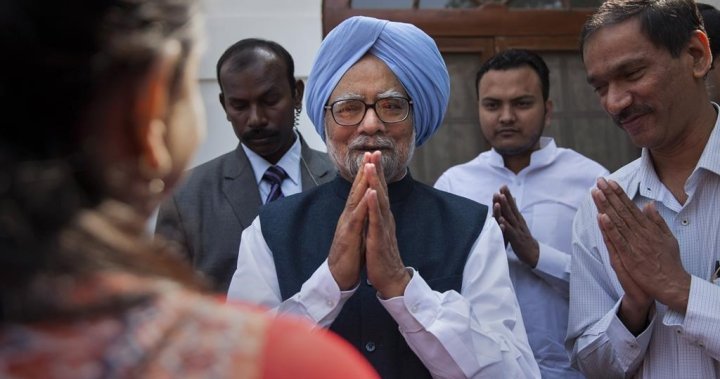Manmohan Singh, the former Indian prime minister widely seen as the architect of the country’s economic reform program, was cremated on Saturday after a state funeral as politicians and the public mourned his death.
The veteran leader, who was also credited with a groundbreaking nuclear deal with the United States, died late Thursday at age 92.
Singh’s body was taken to his Congress party’s headquarters in New Delhi on Saturday morning, where party leaders and activists paid tribute to him and chanted “Manmohan Singh lives forever.”
Abhishek Bishnoi, a party leader, said Singh’s death was a big loss for the country. “He used to speak little, but his talent and actions spoke louder than his words,” he said.
Later, Singh’s body was transported to a crematorium for his final rites as soldiers beat drums.
Government officials, politicians and family members paid their last respects to Singh, whose coffin was decorated with flowers and draped in the Indian flag. Security forces honored him with a ceremonial gun salute.
The funeral ceremony was attended by Indian President Draupadi Murmu and Prime Minister Narendra Modi, who described Singh as one of the “most outstanding leaders of the country”, as well as several Cabinet ministers.
Singh’s body was then placed on a pyre and cremated while religious hymns played.

Get national news daily
Receive the most important news and headlines from politics, business and current affairs in your inbox once a day.
Authorities declared a seven-day mourning period and canceled all cultural and entertainment events during this period. The national flag flies at half-staff in government buildings across India.
A mild-mannered technocrat, Singh served as Prime Minister and leader of the Congress Party in the Upper House of Parliament for ten years, earning a reputation as a man of great personal integrity. He was elected Prime Minister in 2004 by Sonia Gandhi, the widow of assassinated Prime Minister Rajiv Gandhi.
Singh was re-elected in 2009, but his second term was marred by financial scandals and corruption allegations surrounding the organization of the 2010 Commonwealth Games. This led to the Congress party’s crushing defeat in the 2014 national elections against the Hindu nationalist Bharatiya Janata Party led by Narendra Modi.
After Singh resigned as prime minister, he kept a low profile.
As finance minister in 1991, Singh initiated reforms that moved India from a socialist economy to a capitalist model in the face of a huge balance of payments deficit, thereby avoiding a possible economic crisis.
Singh was the first Sikh to hold the country’s top job and publicly apologized in Parliament for the 1984 Sikh massacre, in which about 3,000 Sikhs were killed after then-Prime Minister Indira Gandhi was assassinated by her Sikh bodyguards.
Singh ended India’s nuclear isolation by signing an agreement with the US that gave India access to American nuclear technology. Along with economic reforms, this is considered one of his greatest achievements.
But the deal hurt his coalition government as communist allies withdrew their support and criticism of the deal grew in India in 2008, when it was finalized.
In a condolence statement, US President Joe Biden called Singh a true statesman and a dedicated public servant who “made groundbreaking progress that will continue to strengthen our nations – and the world – for generations to come.”
“The unprecedented level of cooperation between the United States and India today would not have been possible without the strategic vision and political courage of the Prime Minister,” Biden said.
&Copy 2024 The Canadian Press









